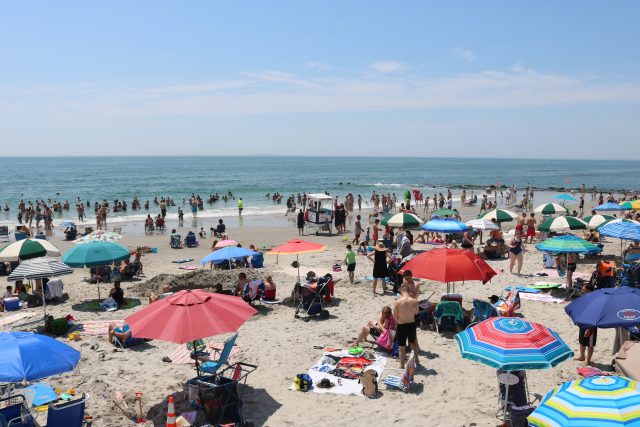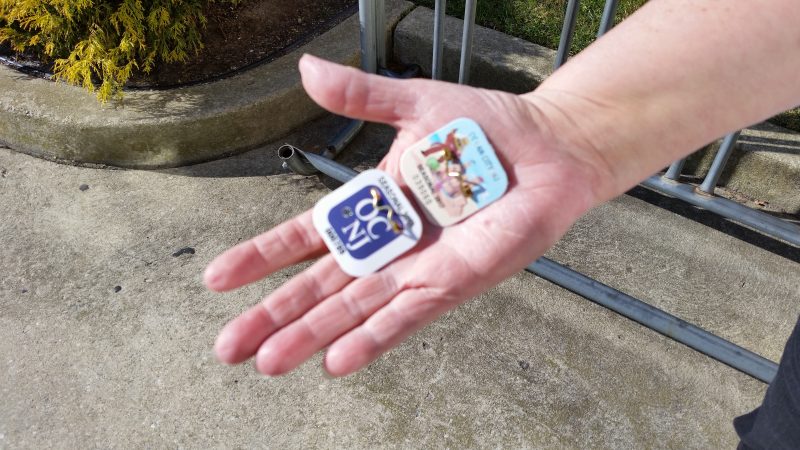
By Donald Wittkowski
Among New Jersey shore towns, Ocean City is the undisputed king of beach tag sales.
It is the only city to annually crack $4 million in annual beach tag revenue. No other town comes close.
That’s why Ocean City’s beach tag sales are such a closely watched indicator of the strength of the summer tourism season.
So far this year, revenue is pretty much running neck and next with last year’s figures, said Frank Donato, the city’s chief financial officer.
Through June 30, the city had $2.612 million in beach tag sales, down slightly from $2.628 million during the same period in 2017.
Donato blamed the rainy weather that marred the early part of summer for dampening sales in June, just as the vacation season was getting into full swing.
“It was a little slow in June. We had a lot of rain in May and part of June to slow that down,” he said in an interview Thursday.
However, Donato was encouraged by the revenue figures through May 31, when beach tags are sold at the discounted preseason price. For that period, the city racked up nearly $2.1 million in revenue, compared to $2 million in 2017.
“That’s a good indicator that people are coming in and buying seasonal tags at a discount and locking in their commitment to visit Ocean City in the summer,” Donato said.

Figures for beach tag sales in July are expected to be compiled in early August, giving an even more detailed statistical snapshot of whether the city is enjoying a solid or perhaps even spectacular summer.
In all, Ocean City reaped $4 million in beach tag revenue in 2017, compared to $4.1 million in 2016. The all-time high of nearly $4.2 million in beach tag revenue came in 2015.
Ocean City annually leads all New Jersey shore towns in beach tag sales because of its sheer size, Donato explained.
The city’s 7-mile-long beachfront is much bigger than neighboring towns, allowing it to handle enormous crowds. At the peak of the summer vacation season, the number of visitors can swell to about 150,000, compared to Ocean City’s year-round population of 11,700, Donato said.
“Ocean City is as big, in many cases, as two or three coastal towns put together,” he said.
Beach tag revenue covers the cost of keeping the beaches clean, employing lifeguards, hiring summer police officers and paying for the city’s share of beach replenishment projects in partnership with the U.S. Army Corps of Engineers.

Another barometer of the strength of the summer tourism season is parking revenue. Parking data through June showed $738,000 in revenue so far this summer, compared to $607,000 for the same period last year, Donato said.
The increase in parking revenue for the early part of summer suggests that the city’s concerts, shows and other special events are drawing visitors to town, even when rainy weather may be keeping them off the beach, Donato pointed out.
“It certainly tells you that people were here,” he said. “I think it’s a good sign that we’re offering something for people to do, even if the skies are rainy.”
The true “litmus test” for parking revenue will be the figures for July and August, reflecting the height of the summer vacation season, Donato noted.
Overall, the city had slightly more than $3 million in parking revenue in 2017, compared to $3.162 million in 2016. The 2016 figure was a record high.





